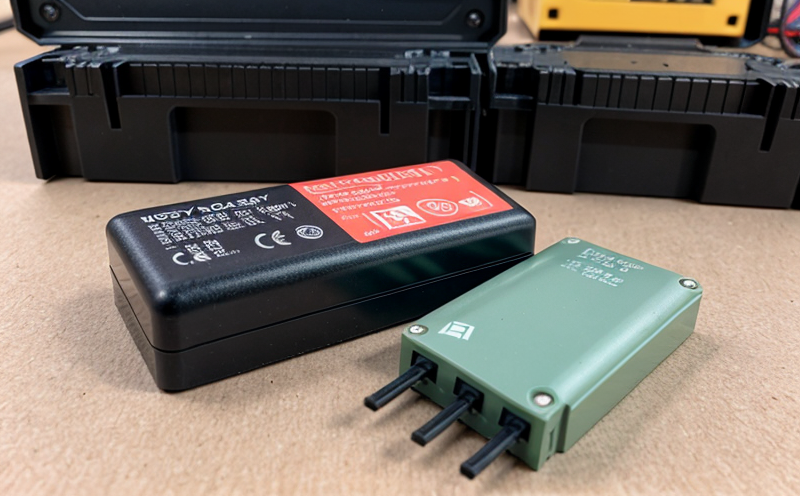IEC 63056 Energy Storage Battery Pack Performance Testing
The IEC 63056 standard provides a comprehensive framework to evaluate and ensure the performance of energy storage battery packs. This service is critical for manufacturers, developers, and quality managers aiming to meet stringent safety, durability, and efficiency standards in the rapidly evolving energy storage market.
Battery packs are at the heart of various applications, from renewable energy systems to electric vehicles (EVs). Ensuring that these batteries perform reliably under real-world conditions is paramount. IEC 63056 addresses this need by offering a set of standardized tests and procedures designed to assess battery pack performance across multiple dimensions.
The standard covers a wide range of parameters, including electrical characteristics, thermal stability, mechanical integrity, and safety features. Testing according to these criteria helps manufacturers identify potential weaknesses in design or manufacturing processes early on, ensuring that the final product meets industry benchmarks for quality and reliability.
One key aspect of this testing is the evaluation of battery modules within packs under various operating conditions. This includes measuring voltage stability over time, monitoring temperature changes during discharge cycles, assessing capacity retention after repeated charge-discharge cycles, and verifying the integrity of safety mechanisms like thermal management systems.
The IEC 63056 standard also emphasizes the importance of understanding how individual cells within a module interact when assembled into larger packs. This interaction can significantly affect overall performance and lifespan, making it essential to test these interdependencies thoroughly. By adhering to this standard, laboratories ensure that they provide accurate assessments that reflect true field usage scenarios.
Another crucial element is the focus on safety aspects such as overvoltage protection, short circuit detection, and heat dissipation measures. These features are vital for preventing hazards associated with improper operation or accidental damage during normal use. Proper implementation of these safeguards not only protects end users but also enhances overall system reliability.
Given the complexity involved in testing large-scale battery packs, specialized equipment and methodologies are required to simulate realistic operating conditions accurately. Our laboratory employs state-of-the-art facilities equipped with advanced instrumentation capable of providing precise measurements and detailed insights into each parameter being tested.
This approach ensures not only compliance with IEC 63056 but also the ability to identify any potential issues before they become critical faults in deployed systems. By adopting this rigorous testing protocol, stakeholders can gain confidence that their products will perform reliably and safely across all intended applications.
For those looking into sustainable practices within the energy sector, IEC 63056 plays an integral role by promoting the development of environmentally friendly technologies while maintaining high standards of performance. This commitment supports broader efforts towards reducing carbon footprints through efficient power storage solutions.
Industry Applications
The application of IEC 63056 testing extends across numerous industries where reliable and safe energy storage is crucial:
- Renewable Energy Systems: Ensuring that battery packs used in solar or wind farms can withstand harsh environmental conditions while maintaining optimal performance.
- Electric Vehicles (EVs): Providing assurance that the batteries powering these vehicles meet safety and efficiency standards necessary for consumer trust and regulatory compliance.
- Homes & Buildings: Supporting the integration of battery storage into residential settings to optimize energy consumption patterns and support grid stability.
- Data Centers: Guaranteeing the reliability of backup power systems that keep critical infrastructure operational during disruptions.
In each case, IEC 63056 testing serves as a cornerstone for ensuring product quality and safety, fostering innovation in technology development while adhering to global standards.
Environmental and Sustainability Contributions
Battery packs play an increasingly significant role in the transition towards cleaner energy sources. Testing according to IEC 63056 contributes positively to environmental sustainability by:
- Promoting Efficiency: Ensuring that batteries operate at peak efficiency reduces waste and extends their useful life, which is beneficial for both consumers and manufacturers.
- Fostering Recycling: Reliable testing helps identify design elements conducive to easier recycling processes, thus minimizing environmental impact upon end-of-life disposal.
- Enhancing Safety: By adhering strictly to international safety standards like IEC 63056, manufacturers reduce the risk of accidents associated with improper handling or malfunction.
The focus on sustainability within our testing services aligns closely with broader goals set forth by organizations such as ISO and UN initiatives aimed at reducing carbon emissions globally. Through rigorous adherence to these standards, we contribute meaningfully towards creating a more sustainable future for everyone involved in the energy storage industry.
Competitive Advantage and Market Impact
The implementation of IEC 63056 testing offers several advantages that can provide competitive differentiation:
- Innovation Facilitation: By staying ahead of regulatory changes and adopting best practices early, companies signal their commitment to innovation and continuous improvement.
- Market Access: Compliance with internationally recognized standards like IEC 63056 opens doors to global markets where stringent quality requirements are enforced.
- Customer Trust: Demonstrating adherence to such robust testing protocols enhances brand reputation among consumers who prioritize safety and reliability in their purchasing decisions.
In the highly competitive energy storage sector, these factors can make a significant difference. Companies that invest in thorough testing not only enhance their own position but also set higher industry standards for all participants.





